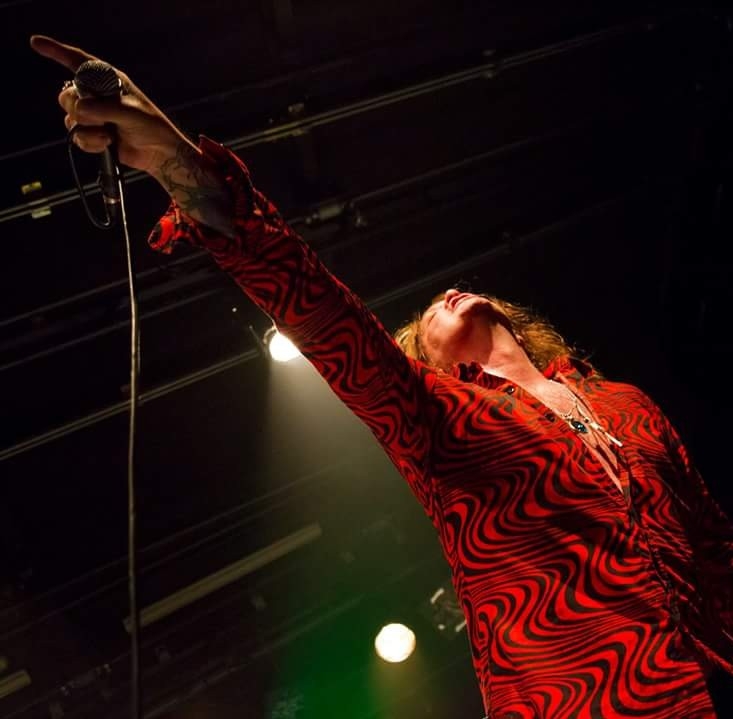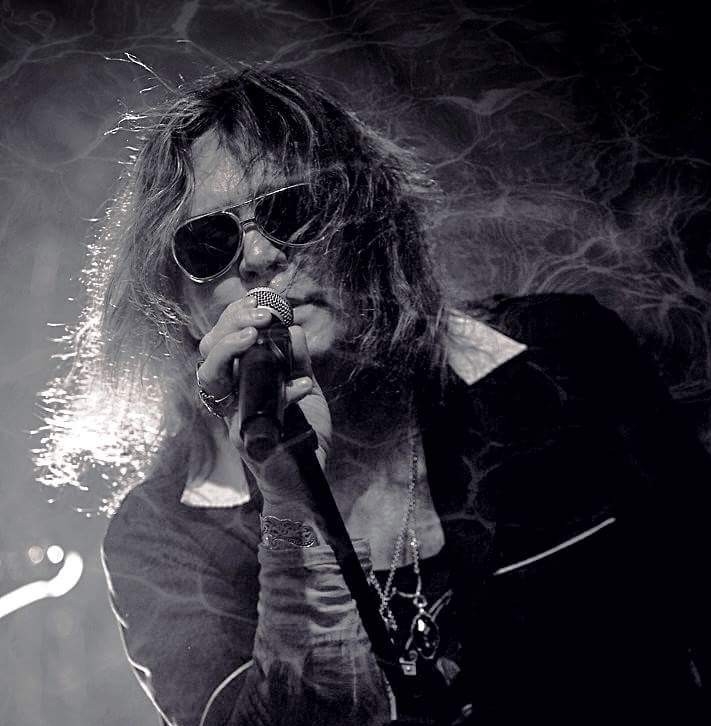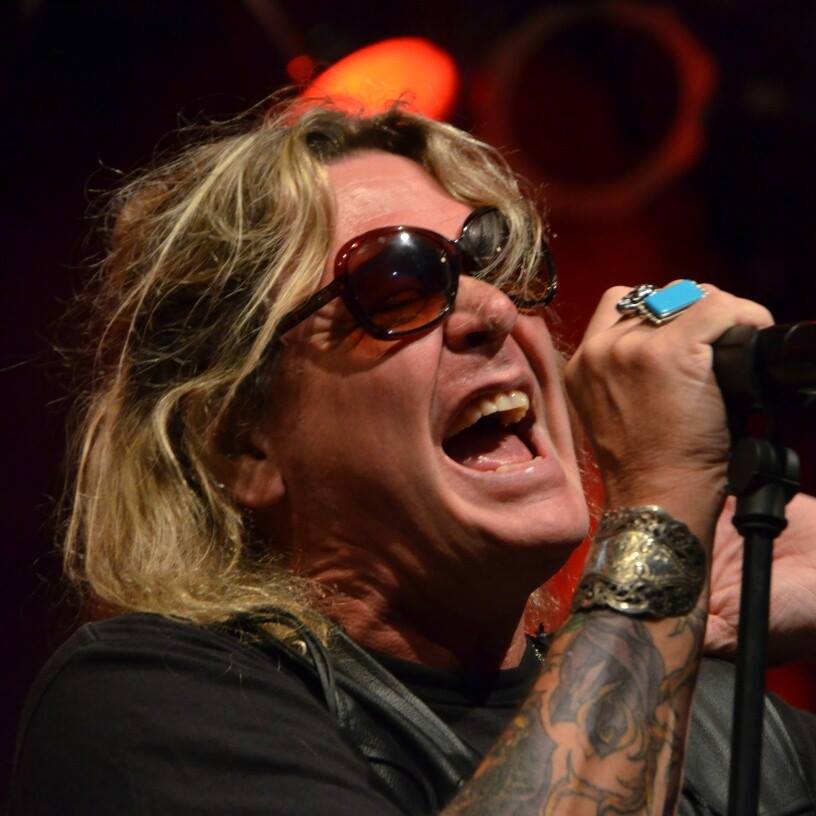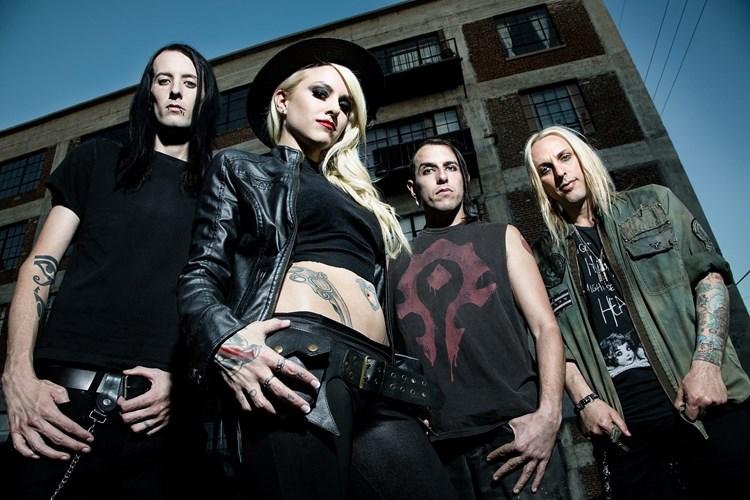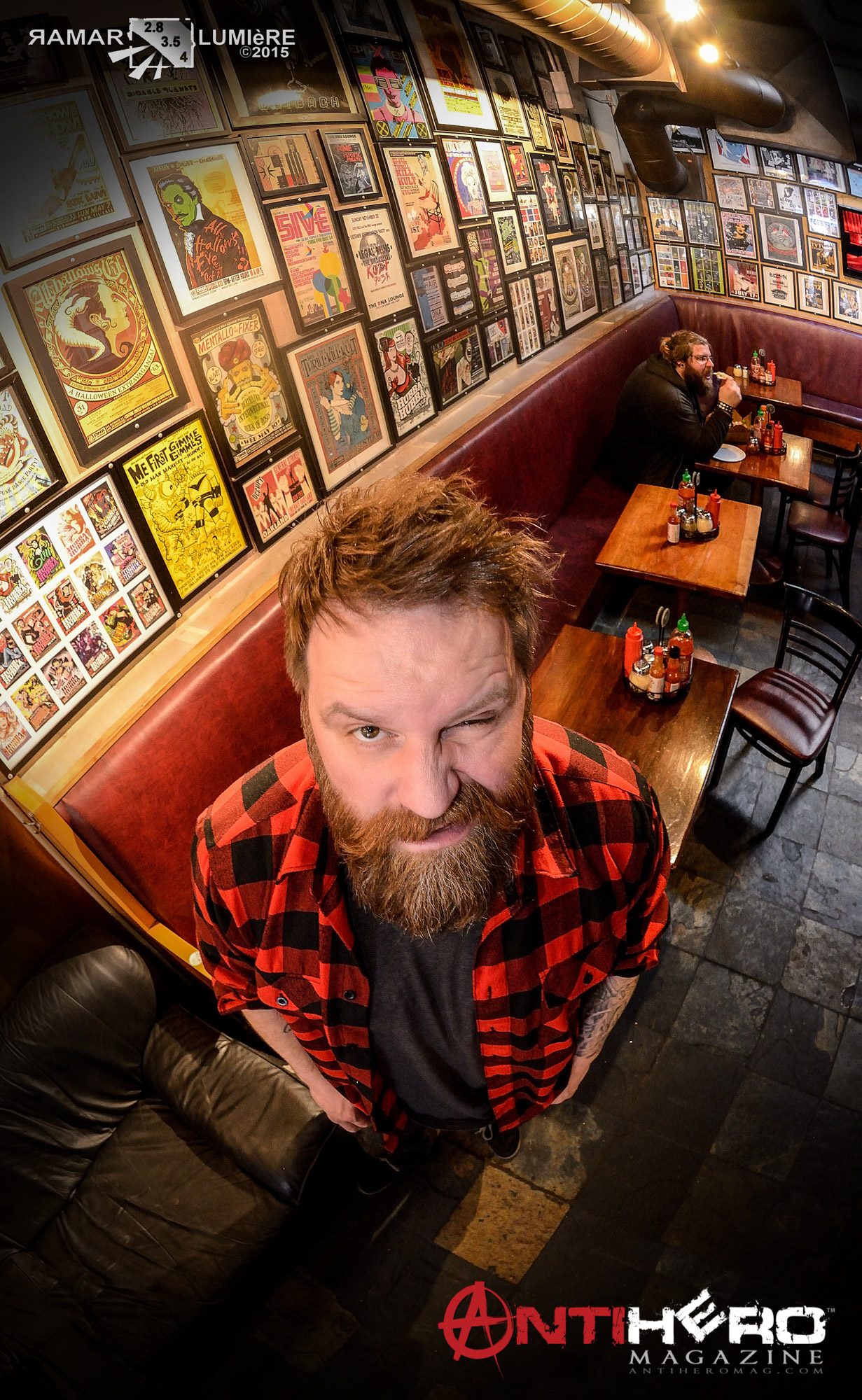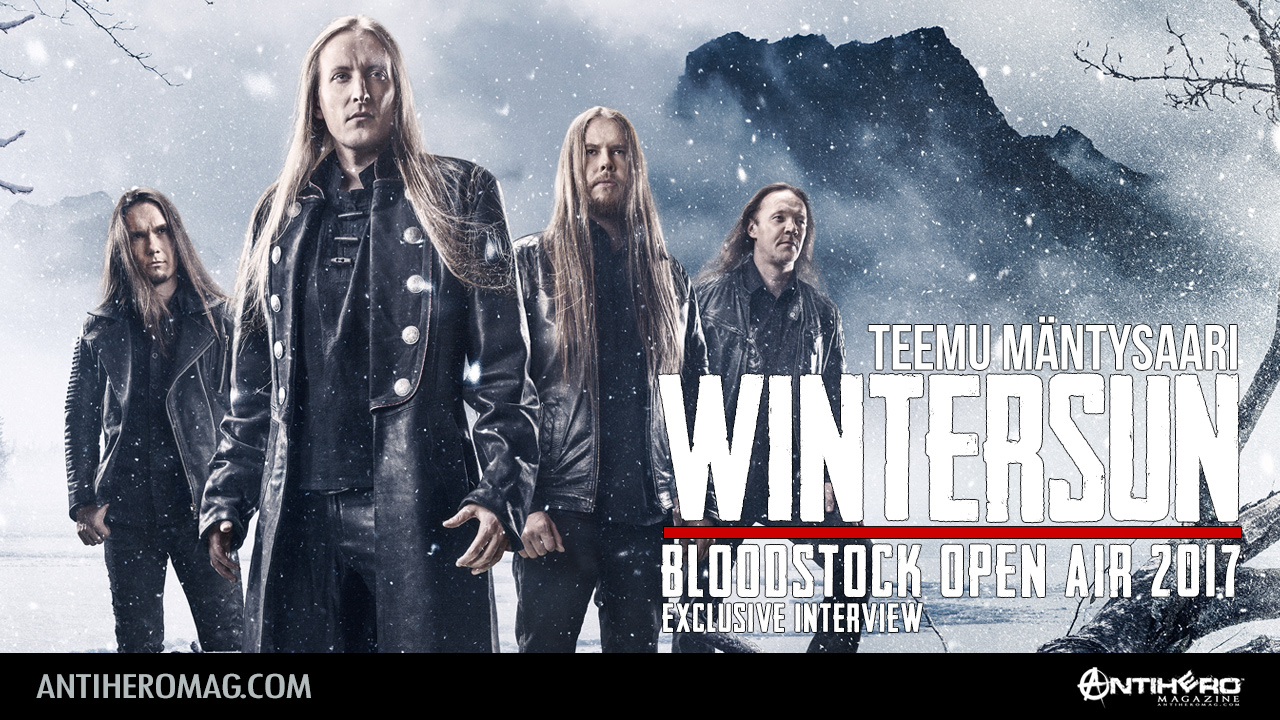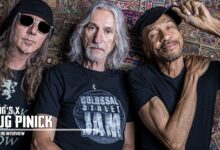Interview with vocalist David Reece
Interview by Mark Dean
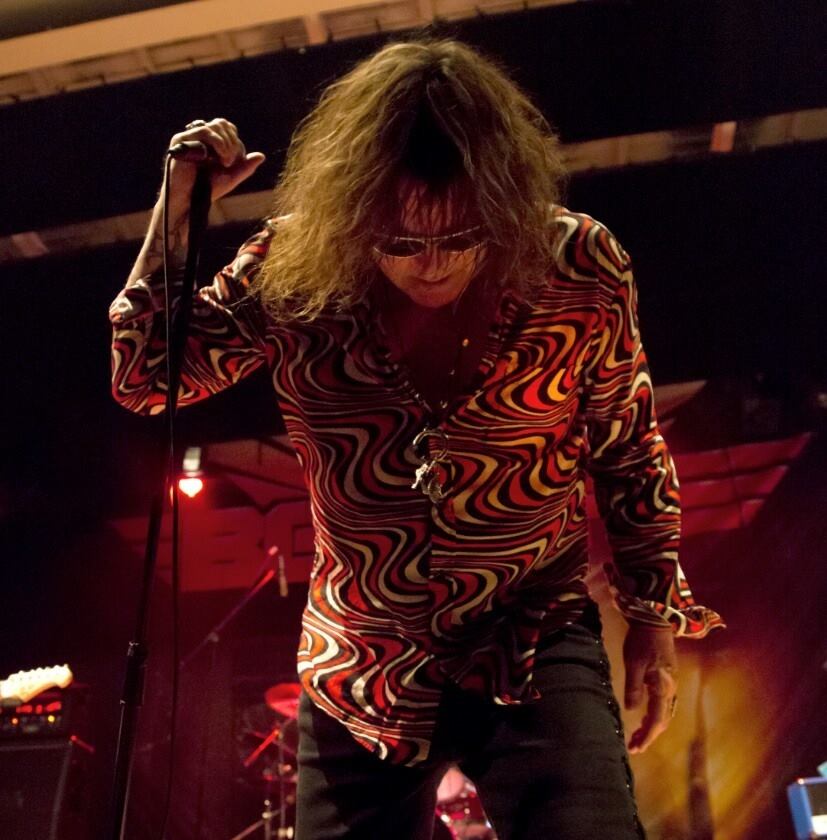
[separator style=”line” /]
It’s a stormy and wet Tuesday night in Manchester, UK. However, I have found regularly that in the UK people don’t seem to be supportive of live music. They don’t help to support rock bands by getting off their asses and coming to watch the shows. Does that annoy you?
Does it piss me off?
Yeah, I am sure that it must have an impact personally?
Same. I mean I go to the Czech Republic, and a room like this will have 400 people, and the next night there’ll be 10. It’s the same thing. Certain cities of England are really good. Tuesday night, it’s depressing when it’s slow but …
It vexes me as a fan that there’s not more here.
It’s 8 o’clock, it could get better. I’ve got a lot people saying they’re coming, but if they don’t I still have to play.
The weather out there, are you aware …have you seen it today.
It’s horrible.
It’s terrible.
I was sitting at the pub at 3 o’clock and I looked at the skies and said, “That looks bad.” It just came like a pal pissing on the rocks.
Is it the same for other places that you have played? In the other countries, do people come out and support live music?
I just got done playing … Like Czech Republic, I do really well in the Eastern bloc areas. Jeff played the night before me for 14 people. The night I played there were 180. The guy was freaking out because it was so good. The next night, I played the club he played and I had the same crowd, and then the next night I had more than him. We were kind of … It was weird, man. The audience …
Has it impacted your career much? If I was in a band with the length of history that you have musically, I’d be pissed off.
It doesn’t make you happy. I like to do this; you know what I mean?
Last I heard, you were in Bonfire. What happened there?
I quit. I was not getting along with Hans at all. I didn’t like the management. I had given my notice in December this year, but they replaced me behind my back in Italy before a show, and I found out it was Michael Bormann. Then I found out Michael Bormann was mad at the band and they got another guy, so I’m really happy to be out of the band. I was completely unhappy. The album, Glorious, sold 6,000 copies. It sold really, really well. It was one of my best-selling albums. I was just a miserable sod in that band. I was not happy. It’s Hans’ band, he dictates what happens and I just wasn’t in the mood for it.
Do times like this evening make you consider pursuing an alternative career. If you weren’t a musician, what else would you have done career-wise, or was music always there?
I would be back into ranching in Montana. I would literally drop all of this and go live in the country, drink my beer after work, I’d work on my equipment and play with my hunting dog.
A lot better weather.
It can get pretty messy in Montana, but it’s the other side of my life that keeps me from going crazy from this, because if I lived this 24 hours a day, I think I would lose my mind.
What, in your life, are you most proud of? You did have a lot of success.
I’m proud of everything that I’ve done. I’ve made some really bad choices, my attitude, I was on drugs terribly in the early 80s and that probably made my head unclear of things I was doing, and I’ve blown some opportunities then. We all did. A lot of the stuff I’ve done in the last five years or so, I love the Reece-Kronlund album, I love what I did with Bonfire with Glorious. I’m working on this album right now with RPG, it’s killing me. It’s great. I’ve got a new album coming out with Frank Pané from Bonfire. We have a new group called Sainted Sinners. It’s got some other guys from around Europe. The whole album is done, it’s just amazing. I’m really happy.
To be fair, you’ve never stopped. You still keep banging out albums.
I can’t. If I stop then I’ll say, “You know what? A show like tonight defeated me” and I’m not going to do that.
What do you do outside of music? You mentioned the ranch, do you have hobbies, interests?
I train hunting dogs and bird dogs. I like bird hunting. I like the English bred dogs, they’re my favorites. I have a lot of Setters, I have Pointers, and I’ve been doing it about 40 years. My Grandfather did it, my Father did it. I like to run, and go train dogs in fields … If I have songs in my head, I will work a dog, I can meditate and become one with the beast. If that sounds crazy, that’s my way of getting away from this shit.
What’s your general opinion on 80s bands getting back together? One or two members, or maybe one member?
They turn into a cover band of themselves. It’s kind of funny and stupid to me, but you know I kind of get it because if their life’s work was 1985 … Like Ratt, those guys were huge. They imploded, and if Bobby goes out and calls it Bobby Blotzer’s Ratt, fine, but it’s not Ratt. Motley Crue is not Motley without the original lineup. They tried that. Accept was not Accept with me.
I had actually brought along my Accept album cover of the album that you played on, Face the Heat, and I’ve had it since the 80s. Unfortunately, I left it behind on the bus – I’ll have track down another one. Let’s discuss another band of that era that you were with, Bangalore Choir, a band that resonates with many people still and also … means a lot to many people. The last album, Metaphor, was out in 2012. Still in touch with those guys?
Actually, we’re doing the reunion show in 2017 at Rock N Skull in Chicago. Danny Greenberg is playing but I’m going to use Mario Percudani with me on guitar, and Andy Susemihl who was on Cadence and Metaphor. If I can, Jackie Ramos will play drums. It looks like Jeff Martin from Badlands will do it. If the original bass player doesn’t do it, I’ll get Greg Chaisson from Badlands, and Jeff Martin. They’re all a fantastic band, they’re like having the new Jon Bonham and John Paul Jones on rhythm. They’re great.
The biggest challenge that you’ve found since you started?
Since I started? Again, because I took about nine years off … I have a lot of fans, the people that I adore that buy my records, but I think now the record companies are murdering the business. They say, “Oh, yeah, we’ll give you a record deal but you have to pay for everything and then we’re going to sell it.”
They don’t really tend to pay much?
They’re making their money off of streaming. It’s the only way they can really do it. I’m working with two new companies right now that are like me and you, okay? They’re metal fans, they’re 80s …
That’s what I was going to say, a lot of bands these days are just doing it themselves.
Yeah, but you know because the record company says, “Well, we’ll give you 1,000 Euros to make an album.” I can’t get out of bed with that with five people. How can I pay a guy 100 Euros to do this solo for me for 1,000 hours? Here’s 100 Euros, buddy. Lose your day job and come spend every night of your life, or leave your kid and wife at home for 12 hours a day, and I’m going to make zero because I’ve got four other guys and I’m giving them 100, too. They killed it, and they have the money.
Looking back at your musical legacy, could you take a favorite album and one that you go, “Oh shit, that was a mistake”?
Tango Down was a mistake. It was a project and I needed the work. People sometimes criticize me as being a singer for hire, but the truth is when there’s work you go for it. Just like an actor, some of your movies are really good, and some of your movies are not so good. I didn’t write those songs … Maybe a couple of songs I wrote, but those are project bands. I regret that. It kept me in the loop with the public. I regret that I couldn’t keep Bangalore Choir together after Firefest. I had the lineup, and they were a superb bunch of guys. We had something that worked, and we play a lot of those songs in this band. Tonight’s a little slow, but people want to hear that stuff. I miss that. Did I answer your question?
Yeah, dude. Finally, who would you like to interview?
Who would I like to interview? Paul Rodgers. I would like to sit in a room with him and just say, “Tell me a story and how did you do it? There’s a sound in your voice, and an emotion that I’ve tried to emulate.”
And there’s no comparison around even to this day.
It’s so good, and such a nice person, so real, musically. There’s something about him that just seems so un-mean. He’s not about, ‘Hey, I’m Paul Rodgers.’ He knows he’s a great singer, but he’s just so humble. I would just ask him, ‘How do you feel? Are you angered or frustrated about those great things you did? You have to be, because you are Paul Rodgers.’ When I get frustrated, I look at him … This guy was fronting Queen for four years, and did a great job!
He did indeed.
It was kind of a weird thing, but you know why he got in the band? Freddie was a huge fan of Paul Rodgers, and he would always say, ‘Listen to this guy from Free. Wow, that guy can sing.’ Freddie would listen to Free records and talk about it, so they said, ‘Let’s call Paul Rodgers from Bad Company. Let’s see if he can do it.’ It was supposed to be a one-off and it lasted four years. I admire him, and Ian Gillan.
Ironically, I have to interview him tomorrow morning.
You’re interviewing Ian [Gillan]? Fantastic! I just saw him in Germany a few weeks ago. I missed him backstage. Ian pays to have his grandchildren get him up early, and Ian sang “Highway Star” as the opening song. It was fantastic. I was just telling Giles (his TM/manager)… Giles is managing me, he handles Graham Bonnet], so you know that. Giles and I are kind of reconstructing the next thing … We’ve got a plan to do a David Reece solo album, heavy … Go to back to the Accept thing and the old Bangalore Choir. Giles says, ‘Reece you need to start singing those songs for your fans again.’ I’m writing them right now. That’s kind of our vision, we’re working on that, too, for 2017. We’re busy.
Okay, that’s great. Thanks for talking to me. Looking forward to the show tonight.
